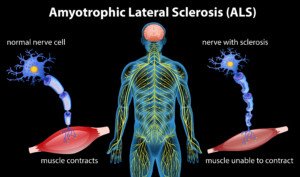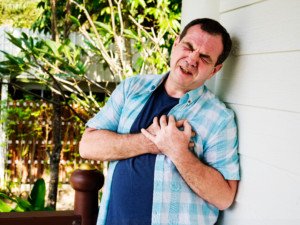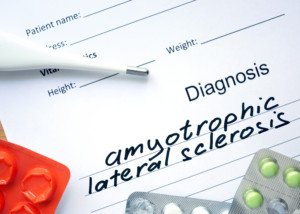
ALS sites have scared the pants off of you since muscle twitching comes up on them, and this is what’s been going on in your quadriceps or thigh.
You need loads of reassurance that you are probably not the few people in 100,000 who are diagnosed every year with ALS.
So muscle twitching can result from ALS. Why fixate on this very rare disease, when quad muscle twitching is far, far more likely to result from just plain stress and fatigue?
In fact, there’s often no known cause other than a muscle just doing what it was meant to do: twitch here and there, or sometimes even a lot.
Sometimes, it can be described as a thumping – a “thumper.”
The vast, vast, vast majority of all the people on this planet who experience quadriceps twitching will NOT be dead within 2-5 years from anything related to this phenomenon.
If anything, the extreme anxiety over this more likely to kill you!
Whether the perceived stress is physical (primitive man confronting a wild animal) or psychological (modern man being trapped in a traffic jam OR freaking over the possibility of ALS due to a quadriceps muscle twitch), the body responds the same way.
Gearing up for a Fight or Flight from a Perceived Threat = Twitching Muscles
The body preps itself for blood clotting in the event of a serious gash, so that you don’t bleed to death.
This came in very handy for cavemen; they were always getting gashed, lacerated and cut up.
They’d fight or flee their ancient dangers. This physical exertion produced hormones that cancelled out the stress hormones that thickened their blood.
Modern man doesn’t fight or flee. He sits and seethes, trembles and ruminates – over paying the bills and whether or not the creepy crawlies in his quadriceps mean ALS and how long he has to live.
No fight or flee means no physical exertion.
No physical exertion means the stress hormones PERSIST, which means that the blood STAYS thick and sticky.
Chronically sticky, thick blood means a much-increased risk of stroke or heart attack !
Wouldn’t it be ironic if while you’re stressing over ALS and muscle twitching in your thigh, you drop from a heart attack?

Shutterstock/Oleg Golovnev
“The key point with benign fasciculations is that, for whatever reason, they occur but do not represent an ominous underlying condition,” explains Kristina Lafaye, MD, a board certified neurologist specializing in clinical neurophysiology and neuromuscular medicine with Tulane Doctors Neurosciences.
“Yes, some people with benign fasciculations could experience them 24/7 (or so they say, I’m a little skeptical of that), but if nothing else is wrong, then I wouldn’t probe further,” continues Dr. Lafaye.
“I don’t do any kind of a frequency count, because if a person doesn’t have evidence of denervation which, if present, would indicate a MND, myelopathy, or some other condition, then it doesn’t warrant any further neurologic evaluation.”
Muscle twitching in ALS almost always comes after significant weakness.
Are you still able to run, dash up and down stairs and operate the pedals of your car without a hitch?
The weakness in ALS is not intermittent.
The weakness of ALS is not of a come and go nature.
It’s not something that flares up and subsides, flares up and subsides, like arthritis or dermatitis.
Once ALS weakness sets in, it stays. And gets worse. Does this describe you?
Thigh twitching can be caused by exercise, even the day before, plus inadequate calcium, magnesium, potassium and water intake. Anxiety often makes twitching spread throughout the body.
Have you noticed that your quad muscle twitches less when your mind gets taken away from it?
This is reassurance you’re probably just full of anxiety and nothing more.










































